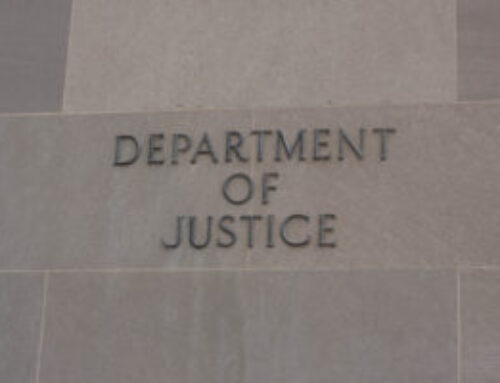By the Constantine Cannon Whistleblower Team
On April 1, TE Connectivity Corporation subsidiary DRI Relays agreed to pay $15.7 million to settle Department of Justice (DOJ) charges of violating the False Claims Act by supplying military parts that did not meet military specifications. DRI makes electrical relays and sockets for various military applications, with manufacturing locations in New York and India.
Military Procurement Fraud Is an Enforcement Priority
According to the government, DRI billed the Defense Department for military grade electrical relays and sockets when it knew those parts did not meet the necessary testing requirements to be deemed military grade. This is just the latest example of DOJ going after military procurement fraud. As DOJ made clear in its 2024 False Claims Act Enforcement Roundup, this is a high priority enforcement area, stressing that “fraud in these programs not only squanders government funds, but also can deprive servicemembers of critical resources and potentially put them at risk.”
It is a sentiment the government echoed with the recent settlement. Acting DOJ Civil Chief Yaakov Roth stated “it is essential to the safety and operational readiness of our military that contractors comply with applicable military specifications,” and that DOJ “will continue to hold accountable those who knowingly supply equipment to the US military that fails to meet their contract obligations.”
Special Agent Patrick Hegarty of the Defense Department’s Office of Inspector General called “maintaining the integrity of the US Department of Defense supply chain a top priority,” and highlighted how committed the agency is to going after suppliers that fail “to adhere to contract specifications and perform required testing on products sold to the US military.” Special Agent Keith Kelly of the US Army Fraud Field Office wholeheartedly agreed, underscoring that “failures to adhere to established standards when providing military parts can place our Soldiers at significant risk and adversely impact the Army’s warfighting capabilities.”
False Claims Act Targets Military Procurement Fraud
The False Claims Act targets this precise type of fraud against the government. Indeed, President Lincoln enacted the statute during the Civil War to go after war profiteers trying to defraud the Union Army with lame mules and sawdust munitions. While a majority of actions today target Medicare fraud, military contractor fraud remain a priority area of government fraud enforcement.
Like most False Claims Act cases, the majority of military procurement fraud cases are originated by whistleblowers under the qui tam provisions of the statute. These provisions allow private parties to bring actions in the name of the government against those who defraud the government. In return, successful whistleblowers can receive up to 30% of the government’s recovery.
A whistleblower was not involved in the current action. Instead, shortly after it acquired DRI in October 2020, TEC Connectivity disclosed to the Defense Department that DRI failed to conduct the required military specification tests. It then fully cooperated with the government’s investigation, which no doubt softened the government’s ultimate sanction against the company.
We Represent Military Procurement Fraud Whistleblowers
Constantine Cannon has substantial experience representing whistleblowers in False Claims Act matters involving military contract fraud. In one of our most recent successes in this area, we represented two whistleblowers in a False Claims Act case against KBR Services for the company’s alleged fraud in connection with its multi-billion contract to support the US military in Iraq.
After years of litigation, the company paid $108.75 million to settle the case. It remains the largest settlement of a case alleging fraud during the Iraq War. Our clients received a whistleblower award of $31.5 million, representing 29% of the government’s recovery. KBR paid an additional $35 million in attorneys’ fees and costs.
According to Constantine Cannon whistleblower partner Dan Vitelli, one of the lead lawyers on the KBR matter: “The False Claims Act was designed to go after this exact type of alleged fraud. Whether it involves faulty munitions, overbilling military supply contracts, or as in this most recent settlement, allegations that an entity supplied military parts that did not meet specifications, the government does not tolerate fraud with its suppliers. Especially when it involves materials that can put our military in harm’s way.”
Contact Us to Learn More
Please contact us if you have information relating to potential defense contractor fraud or want to learn more about what it means to be a whistleblower. We will connect you with an experienced member of the Constantine Cannon whistleblower team for a free and confidential consult.
Contact Us
Other Constantine Cannon False Claims Act Successes
Read Military Contractor Pays $15.7M to Settle False Claims Act Charges of Failing to Comply with Required Military Specs at constantinecannon.com






Leave A Comment